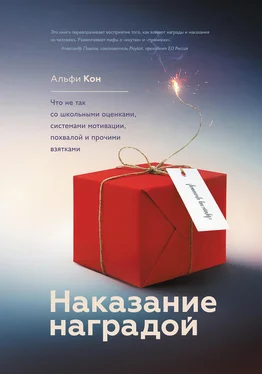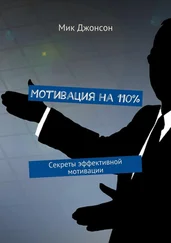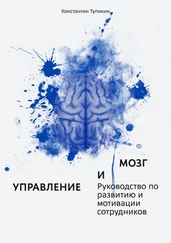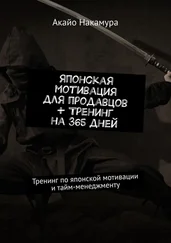Pittman, Thane S., Ann K. Boggiano, and Diane N. Ruble. “Intrinsic and Extrinsic Motivational Orientations: Limiting Conditions on the Undermining and Enhancing Effects of Reward on Intrinsic Motivation.” In Teacher and Student Perceptions: Implications for Learning , edited by John M. Levine and Margaret C. Wang. Hillsdale, N.J.: Erlbaum, 1983.
Pittman, Thane S., Eugenia E. Cooper, and Timothy W. Smith. “Attribution of Causality and the Overjustification Effect.” Personality and Social Psychology Bulletin 3 (1977): 280–283.
Pittman, Thane S., Margaret E. Davey, Kimberly A. Alafat, Kathryn V. Wetherill, and Nancy A. Kramer. “Informational Versus Controlling Verbal Rewards.” Personality and Social Psychology Bulletin 6 (1980): 228–233.
Pittman, Thane S., Jolee Emery, and Ann K. Boggiano. “Intrinsic and Extrinsic Motivational Orientations: Reward-Induced Changes in Preference for Complexity.” Journal of Personality and Social Psychology 42 (1982): 789–797.
Plant, Robert W., and Richard M. Ryan. “Intrinsic Motivation and the Effects of Self-Consciousness, Self-Awareness, and Ego-Involvement: An Investigation of Internally Controlling Styles.” Journal of Personality 53 (1985): 435–449.
Posner, Bruce G. “Pay for Profits.” Inc ., September 1986: 57–60.
Potter, Ellen F. “‘Good Job!’: How We Evaluate Children’s Work.” Childhood Education 61 (1985): 203–206.
Power, Thomas G., and M. Lynn Chapieski. “Childrearing and Impulse Control in Toddlers: A Naturalistic Investigation.” Developmental Psychology 22 (1986): 271–275.
Premack, David. “Toward Empirical Behavior Laws. I. Positive Reinforcement.” Psychological Review 66 (1959): 219–233.
Pretty, Grace H., and Clive Seligman. “Affect and the Overjustification Effect.” Journal of Personality and Social Psychology 46 (1984): 1241–1253.
Pritchard, Robert D., Kathleen M. Campbell, and Donald J. Campbell. “Effects of Extrinsic Financial Rewards on Intrinsic Motivation.” Journal of Applied Psychology 61 (1977): 9–15.
Quattrone, George A. “On the Congruity Between Internal States and Action.” Psychological Bulletin 98 (1985): 3–40.
Quick, Sue Smith. “Good as Gold.” Clearing House , February 1990: 264.
Rachlin, Howard. Introduction to Modern Behaviorism. 3d ed. New York: Freeman, 1991.
Raina, M. K. “A Study into the Effect of Competition on Creativity.” Gifted Child Quarterly 12 (1968): 217–220.
Rainey, Robert G. “The Effects of Directed Versus Non-Directed Laboratory Work on High School Chemistry Achievement.” Journal of Research in Science Teaching 3 (1965): 286–292.
Raspberry, William. “Chump Change.” Washington Post , 18 May 1990: A19.
Ravitch, Diane. The Great School Wars: New York Gty , 1805–1973. New York: Basic Books, 1974.
Reader, Mark J., and Stephen J. Dollinger. “Deadlines, Self-Perceptions, and Intrinsic Motivation.” Personality and Social Psychology Bulletin 8 (1982): 742–747.
Redling, Edward T. “Myth vs. Reality: The Relationship Between Top Executive Pay and Corporate Performance.” Compensation Review 13 (1981): 16–24.
Reid, William J., and Cynthia Bailey-Dempsey. “The Effects of Monetary Incentives on School Performance.” Families in Society 16 (1995): 331–340.
Reiss, Steven, and Leonard W. Sushinsky. “Overjustification, Competing Responses, and the Acquisition of Intrinsic Interest.” Journal of Personality and Social Psychology 31 (1975): 1116–1125.
Render, Gary F., Je Nell M. Padilla, and H. Mark Krank. “What Research Really Shows About Assertive Discipline.” Educational Leadership , March 1989: 72–75.
Rich, Jude T., and John A. Larson. “Why Some Long-Term Incentives Fail.” In Incentives, Cooperation, and Risk Sharing , edited by Haig R. Nalbantian. Totowa, N.J.: Rowman & Littlefield, 1987.
Roane, Kit R. “Money Can Help, But It Can Hurt, Too.” New York Times , 12 July 1998:18.
Robison, Jonathan I. “To Reward?… Or Not to Reward?: Questioning the Wisdom of Using External Reinforcement in Health Promotion Programs.” American Journal of Health Promotion , September/October 1998: 1–3.
Rodin, Judith, and Ellen J. Langer. “Long-Term Effects of a Control-Relevant Intervention with the Institutionalized Aged.” Journal of Personality and Social Psychology 35 (1977): 897–902.
Roemer, Joan. “Stars and Bribes Forever.” Parenting , October 1992: 58, 61.
Rogers, Brenda T. “Cognitive Evaluation Theory: The Effects of External Rewards on Intrinsic Motivation of Gifted Students.” Roeper Review 7 (1985): 257–260.
Rogers, Carl R., and B. F. Skinner. “Some Issues Concerning the Control of Human Behavior: A Symposium.” Science VIA (1956): 1057–1066.
Rollins, Thomas. “Pay for Performance: The Pros and Cons.” Personnel Journal , June 1987: 104–111.
Rosemond, John. “When Good Praise Is Bad.” Better Homes and Gardens , August 1990: 39.
Rosen, Ned. Teamwork and the Bottom Line: Groups Make a Difference. Hills-dale, N.J.: Erlbaum, 1989.
Rosenfield, David, Robert Folger, and Harold F. Adelman. “When Rewards Reflect Competence: A Qualification of the Over justification Effect.” Journal of Personality and Social Psychology 39 (1980): 368–376.
Rosenholtz, Susan J., and Carl Simpson. “The Formation of Ability Conceptions: Developmental Trend or Social Construction?” Review of Educational Research 54 (1984): 31–63.
Ross, Ian Campbell. “Role Specialization in Supervision.” Dissertation Abstracts 17, 11 (1957): 2701–2702.
Ross, Michael. “Salience of Reward and Intrinsic Motivation.” Journal of Personality and Social Psychology 32 (1975): 245–254.
Rothe, Harold F. “Output Rates Among Welders: Productivity and Consistency Following Removal of a Financial Incentive System.” Journal of Applied Psychology 54 (1970): 549–551.
Rotter, Julie Ann. “The Effects of Contingency Usage in a Familiar Food Setting on Young Children’s Subsequent Food Preferences.” M.S. thesis, University of Illinois, Urbana-Champaign, 1982.
Rowe, Mary Budd. “Relation of Wait-Time and Rewards to the Development of Language, Logic, and Fate Control: Part II – Rewards.” Journal of Research in Science Teaching 11 (1974): 291–308.
Rubin, Zick, and Anne Peplau. “Belief in a Just World and Reactions to Another’s Lot: A Study of Participants in the National Draft Lottery.” Journal of Social Issues 29 (1973): 73–93.
Rubin, Zick, and Anne Peplau. “Who Believes in a Just World?” Journal of Social Issues 31 (1975): 65–89.
Ryan, Richard M. “Control and Information in the Intrapersonal Sphere: An Extension of Cognitive Evaluation Theory.” Journal of Personality and Social Psychology 43 (1982): 450–461.
Ryan, Richard M., James P. Connell, and Edward L. Deci. “A Motivational Analysis of Self-Determination and Self-Regulation in Education.” In Research on Motivation in Education , vol. 2: The Classroom Milieu , edited by Carole Ames and Russell Ames. Orlando, Fla.: Academic Press, 1985.
Ryan, Richard M., James P. Connell, and Wendy S. Grolnick. “When Achievement Is Not Intrinsically Motivated: A Theory of Internalization and Self-Regulation in School.” In Achievement and Motivation: A Social-Developmental Perspective , edited by Ann K. Boggiano and Thane S. Pittman. Cambridge: Cambridge University Press, 1992.
Читать дальше
Конец ознакомительного отрывка
Купить книгу

![Олег Абакумов - Третье отделение на страже нравственности и благочиния [Жандармы в борьбе со взятками и пороком, 1826–1866 гг.]](/books/27001/oleg-abakumov-trete-otdelenie-na-strazhe-nravstven-thumb.webp)










